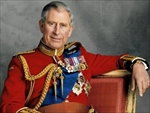Gordon Brown

Gordon Brown

Gordon Brown is a British politician who served as the Prime Minister of the United Kingdom from 2007 to 2010, leading the Labour Party. Prior to his premiership, he was Chancellor of the Exchequer from 1997 to 2007, holding one of the longest tenures in that position in British history. Born on February 20, 1951, in Scotland, Brown studied history at the University of Edinburgh, where he earned a PhD. Known for his role in navigating the UK through the global financial crisis of 2008, his time in office was marked by both achievements and challenges, including his efforts to manage the economy and his government’s handling of domestic and international issues. Brown succeeded Tony Blair as leader of the Labour Party but was unable to win a second term as prime minister after a general election in 2010.
Sunday Times Rejects Gordon Brown's Claims of Criminal Activity in Flat Purchase Investigation
- Wednesday, 13 July 2011
The Sunday Times has rejected criticism from former Prime Minister Gordon Brown, who accused the newspaper of using criminals to get access to his personal details. The newspaper claims its investigation into Brown's purchase of a flat was in the public interest and followed the Press Complaints Commission code. The paper denied any wrongdoing, saying it had reasonable grounds to investigate and gave all sides a fair hearing.
Sun Denies Hacking Gordon Brown's Family Medical Records
- Wednesday, 13 July 2011
The Sun newspaper has denied accessing former Prime Minister Gordon Brown’s family medical records without his knowledge. The paper claims that a story in 2006 about Mr. Brown's son Fraser having cystic fibrosis came from an unnamed member of the public who wanted to raise awareness for the condition. A written affidavit from the source confirms this, and the Sun says it did not access any medical records or commission anyone to do so.
Gordon Brown Slams Media Influence in Fiery Speech
- Wednesday, 13 July 2011
Gordon Brown’s speech condemning Rupert Murdoch and his newspapers is seen by some as marking a new era for politics and media. However, the author argues that politicians will always seek favorable coverage from the press, while newspapers crave power and influence. The tension between the two has only worsened over time due to politicians' desire for unmediated communication with the electorate and media organizations' need for legal and regulatory favors to expand their empires. Brown's own attempts to make friends with Murdoch and his lieutenants are highlighted as examples of this perpetual loveless embrace, with no condemnation or promise of virtue being enough to bring about change; instead, transparency in dealings between politicians and the press is necessary for a new era.
Gordon Brown Resignation Speech
- Tuesday, 11 May 2010
British Prime Minister Gordon Brown resigned in a brief, emotional statement, marking the end of 13 years of Labour government and clearing the way for the Conservative party under David Cameron to take power. His resignation followed a general election that resulted in no clear winner, with the Conservative Party securing the most seats but falling short of a majority. Over the following days, Cameron's Conservatives and Labour held talks with the Liberal Democrats, but failed to reach a coalition agreement, with Labour officials ultimately deciding to step down and enter opposition. Brown, in his emotional departure, informed the Queen of his resignation and expressed his well wishes to Cameron.




















